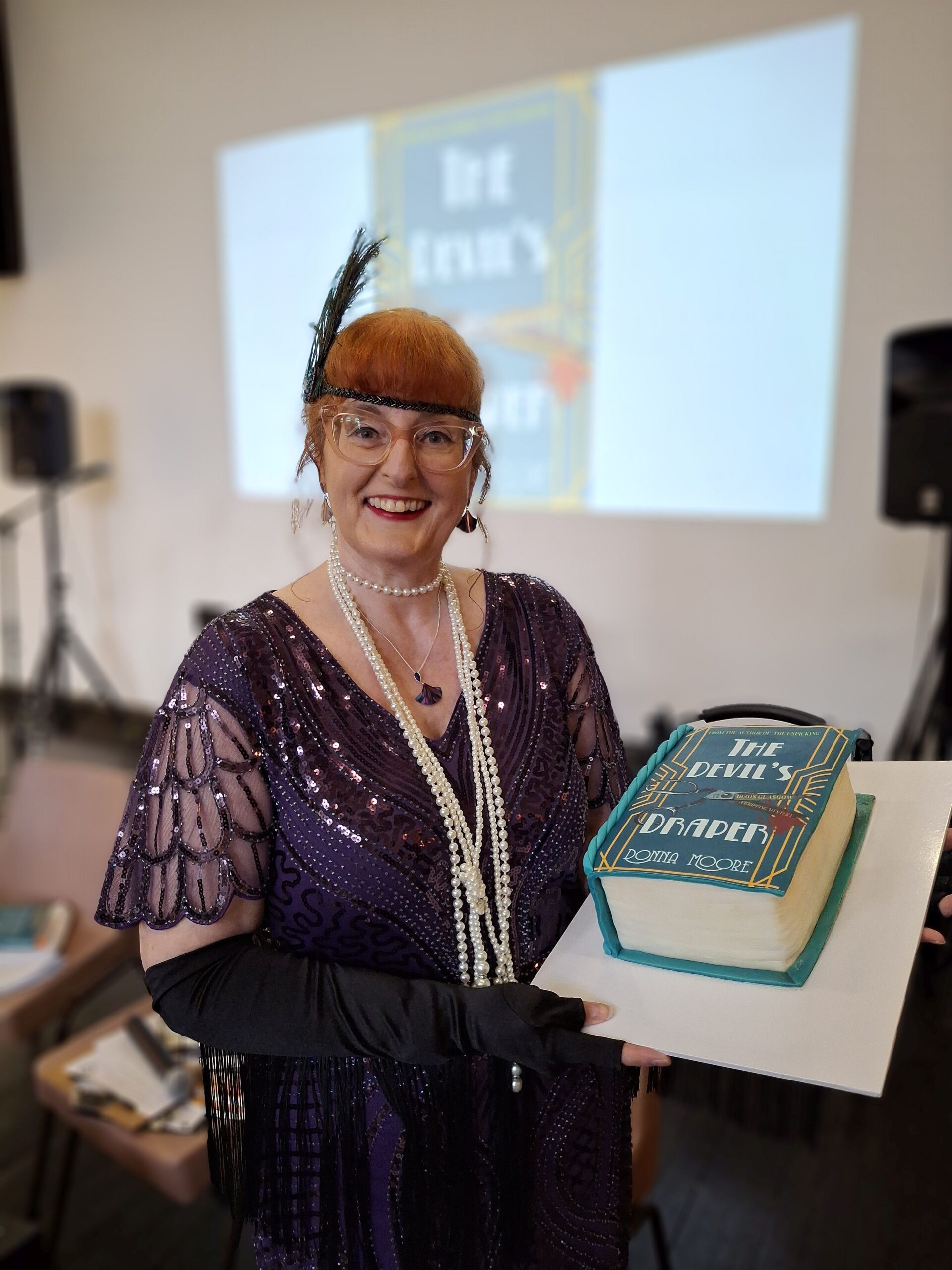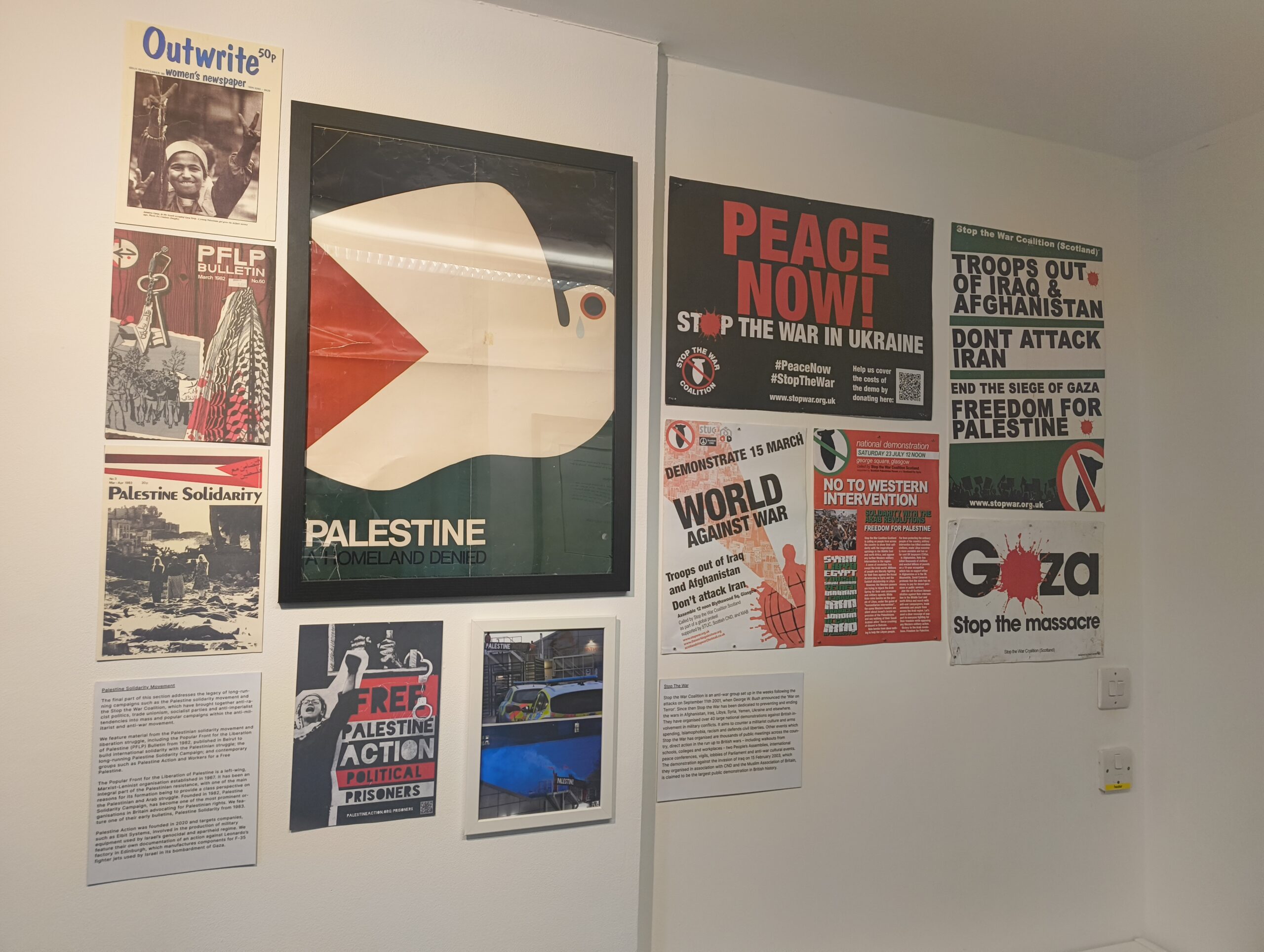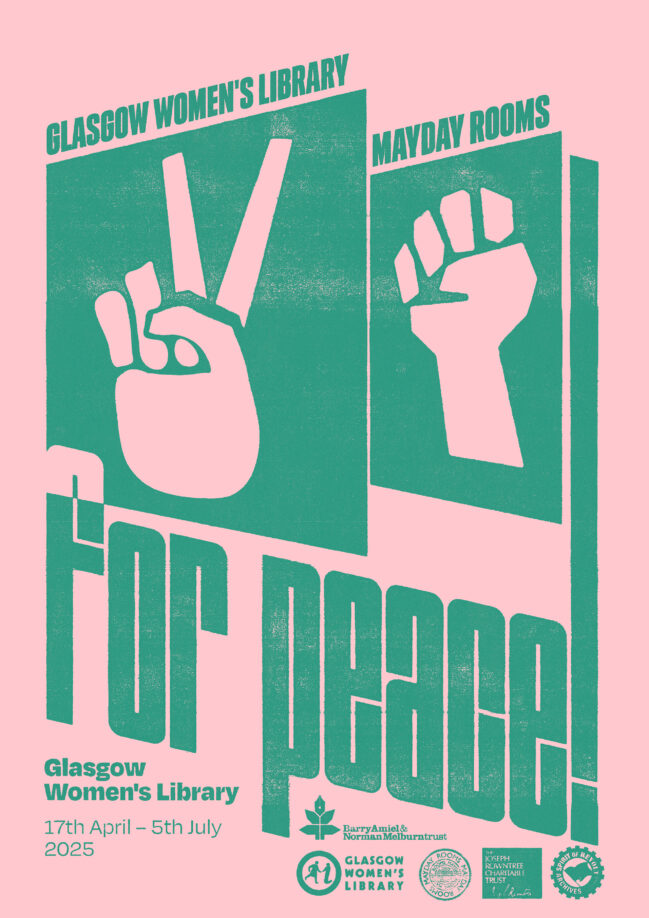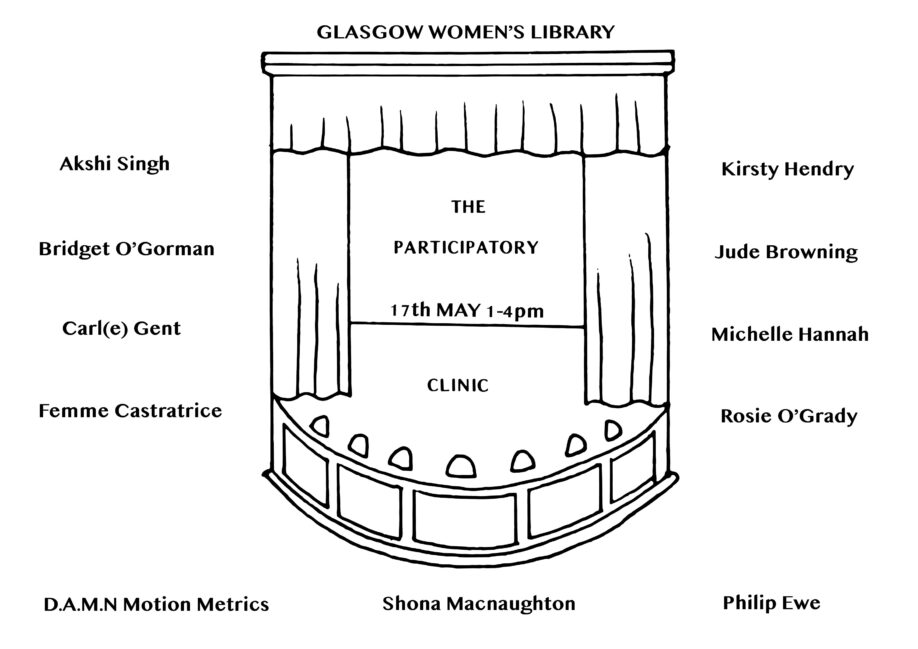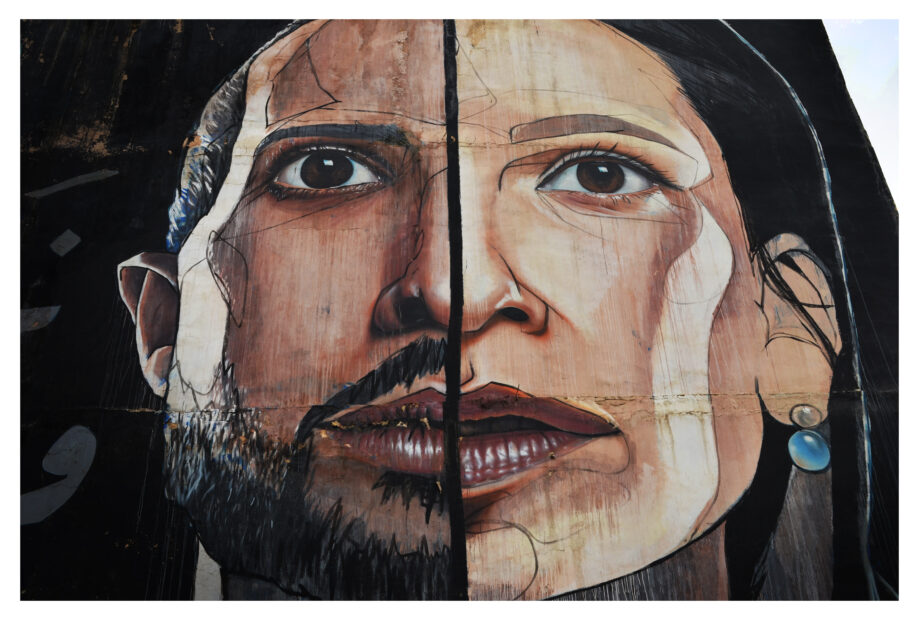At GWL we actively collect artefacts and materials which document women’s lives and achievements, past and present, and aim to make them accessible to the broadest range of users. First hand accounts of women’s experiences provide unique and often untold perspectives on a period in history or event. Our collection includes diaries such as those of Dorothy Dick as well as oral histories such as the interviews with women connected with the Women’s Aid mouvement in Scotland, gathered as part of the Speaking Out project in 2017.
Arran is one of our volunteer literacy tutors and a recent graduate of M.Ed in Children’s Literature and Literacies at the University of Glasgow where she met Mia, an international student from Taiwan. Arran wanted to find out what life is like for women living in other parts of the world and talk to them about how the crisis is developing in their country. Here she shares a conversation she had with Mia at the start of May 2020.
The Covid-19 epidemic is a global crisis that is affecting everyone worldwide. As countries attempt to navigate the situation, it is increasingly important to communicate and learn from others who are at different stages of this challenge. I decided to check-in with some friends from around the world and see how their governments have handled the situation, how C-19 has impacted their lives and what it has made them think about. In this interview I talk with Mia Chiou, a former student at the University of Glasgow and ESOL teacher who returned to Taiwan earlier this year.
Arran: When did you first hear of COVID-19?
Mia: The first time when we heard of [it] we didn’t actually hear the term COVID-19. We were first introduced to the word like Coronavirus from Wuhan China where the outbreak is. I think we were first introduced about that around the middle of January, just after the presidential election. Everybody started to shift all of their attention to this after the election.
Arran: And do you remember what you personally felt? What was your first reaction when you heard the news?
Mia: I just felt like, “Oh, we’re doing this all over again”, because of the epidemic of SARS, in 2003. So, 17 years ago. But, I didn’t actually have any memory of that. And then the news started to air some of the past news stories from 2003. And this kind of intensified our fear about how bad this could be if we didn’t proceed carefully.
Arran: Do you think that airing these news stories helped people accept what the government was asking of them faster?
Mia: I think so. I think it does. I think the media really played a huge role this time. It has kind of helped. Of course, there is always fake news around the media, but also the majority of the news is pretty transparent. We have a “command centre”, that briefs us on whatever has been going on around the epidemic since the middle of January. Because of those briefings, every single day, for 100 days so far, the audience really understands what’s going on. And they keep us all alert about how many victims are there now and are they exported or are they local cases.
Arran: The president in Taiwan, Tsai Ing-wen, is a woman. There was an article in The Guardian a few days ago, that was saying that countries that are being run by women seem to be handling the pandemic better. Do you have an opinion about that?
Mia: I do. Actually, I think I’ve shared other articles like this, from Forbes Magazine. They also have an article about how women around the world, female leaders, how they contained it a bit better, leaders from Germany from New Zealand, and Taiwan.
Arran: Was there anything that stood out to you from those articles that rang true?
Mia: As I remember the article, it says, there are elements that you can find from these women, the last element, as the writer put it, is love, like they are more loving. And I think it’s somehow quite true even though [these leaders] are really, certain, really strong but, they are also very, very caring. And they don’t mind giving this power they have to the experts. A lot of the leaders like to prove that they can handle this well and they don’t listen to the experts… or are they just being really arrogant?
Arran: What are some of the things that the government has asked you as a citizen to do?
Mia: Like everywhere, keep social distancing. And also wear a mask as long as you’re in any public space. Some of the public places will ask you to check your temperature before you’re allowed to get in. And also some places even ask you to sign your name before you get into the building. Because if there’s any cluster-infection in the building, it’ll be easier for them to track it down. They’ll be able to check which time of the day. How many people. And who are those people with access to this building. And so they can start the investigation.
Arran: What sort of buildings?
Mia: Buildings like department stores. Or some of the restaurants even do.
Arran: Do you feel conflicted at all when you have to give that information or are you happy to do it?
Mia: Initially, yes. But later on, I think the more people understand why these people decided to do that. And I think it’s for good reason they don’t really want to know your personal information at all, but it’s just easier for the government to track down cases. It’s like, we’re at a very critical moment of our lives. So we have to do something really critical.
Arran: So, if I were to go, you don’t live in Taipei, you live outside the city, but if I were to go to one of the larger main streets where you live, what would I see walking down the street?
Mia: It’s quiet. But some things are still regular. Like, most of the stores are open. I think the only thing that’s been closed is clubs, nightclubs. Gyms are still open and most stores are still open, including restaurants and cafes. And grocery stores. Pretty much everything is open. There are always customers going in as well.
Arran: Is there no limit on how many people can be in at one time?
Mia: There should be no more than 300 people indoors at one place. And no more than 500 people outdoors.
Arra: How has life changed for you then if so much of it is kind of going on the same? Except for having to wear a mask, having to sign your name sometimes, and having to get your temperature checked.
Mia: I am not currently working but I’ve heard from my past teaching colleagues, they say, work hasn’t really changed that much, actually, except that they constantly request that students wash their hands, and there will be someone who is in charge of spraying on their hands. And some schools have used yellow folders to kind of create a barrier for you when you’re eating, just in case your droplets could go into someone else’s lunch. I think this only happens in elementary school. In highschools, my colleagues have also told me that every time they or their students enter the campus, there will be people tracking their temperature. Each student is checked, so you can imagine how long the process takes in a school of 1000 students.
Arran: Do you see much news coverage from other places? How is the Taiwanese media talking about C-19 elsewhere and how it’s being handled? And what do you think when you see the news about other countries?
Mia: Really, really depressing. Very depressing. And then also at the same time, I’m really, really grateful for all the efforts that our government has taken. I also feel like I’m a global citizen. I feel like I want to do something for the globe as well. So yeah, Taiwan has been donating a lot of masks to foreign countries; in Korea, UK, US, Japan, Canada, Italy, and Thailand and a lot of countries around the world. Because the production of the masks in Taiwan is quite abundant at the moment. All the masks in Taiwan are rationed. Everybody pretty much can have masks and they are really cheap. The government, when the outbreak started in China, at the end of January, the government started to initiate this mask rationing plan. They asked all the mask factories to provide masks only for the government. We stopped all the exports to ensure there were enough clean masks for the population.
Arran: What about the testing for the actual virus? Do you guys have enough testing ability?
Mia: Oh, yeah… The government also developed this really quick test paper which you can use to test people and produces the results in 20 minutes. It makes it much easier to confirm whether this is a case of C-19 or not.
Arran: It sounds like a lot of things are happening around you. How are you spending your day today?
Mia: I do some yoga and stretching in the morning. I water my plants. I’ve spent a lot of time in my garden recently. And I pick up my grandma everyday. She comes to my parent’s house to help us out. I spend the rest of the day studying for upcoming exams.
Arran: Have you learnt any new skills or taken up old hobbies?
Mia: Yeah, I have – planting in the garden. It is good to take time to nurture plants.
Arran: Thank you so much for talking to me today. Do you have anything else you’d like to add?
Mia: Yeah, I think “stay hopeful.” I think this is a great opportunity for all humankind to reflect on our lives, and reflect on how we’ve treated the environment…we are constantly in a go-go-go situation and suddenly we’ve been asked to stop.

